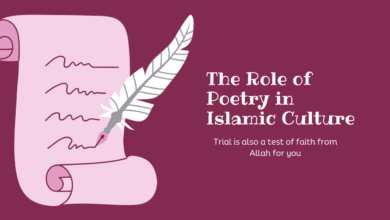Anger Management in the Light of Quran and Sunnah
Quranic Wisdom: Controlling Anger through Faith

Anger Management in the Light of Quran and Sunnah
Anger management is highly significant in Islam as it helps individuals maintain good character and avoid sinful actions that can result from uncontrolled anger. The Quran and Sunnah provide guidance on how to control and channel anger positively.

Introduction
Anger is a powerful and often destructive emotion that can have detrimental effects on individuals and their relationships. In the Islamic tradition, managing anger is not only a matter of personal well-being but is also a spiritual endeavor. The Quran and the Sunnah (the teachings and practices of the Prophet Muhammad, peace be upon him) provide valuable guidance on how to control and channel this intense emotion in a constructive manner. This article explores the principles of anger management as outlined in the Quran and Sunnah.
Understanding Anger
Before delving into the Quranic and Prophetic guidance on anger management, it is essential to understand the nature of anger. Anger is a natural emotion that can be triggered by various factors, including frustration, disappointment, fear, and injustice. While anger itself is not inherently sinful, it becomes problematic when it leads to harmful actions or disrupts one’s relationship with Allah and others.
Quranic Guidance on Anger
- Seek refuge in Allah: In Surah Al-Imran (3:135), the Quran advises believers to suppress their anger and pardon others, saying, “And those who, when they commit an immorality or wrong themselves [by transgression], remember Allah and seek forgiveness for their sins—and who can forgive sins except Allah?—and [who] do not persist in what they have done while they know.” Turning to Allah for guidance and seeking His forgiveness can help calm one’s anger.
- Repel evil with good: The Quran encourages responding to anger or wrongdoing with kindness and forgiveness. In Surah Fussilat (41:34), it says, “And not equal are the good deed and the bad. Repel [evil] by that [deed] which is better; and thereupon the one whom between you and him is enmity [will become] as though he was a devoted friend.” This approach can help defuse conflicts and mend relationships.
- Be patient: Patience is highly regarded in Islam, and it plays a crucial role in managing anger. In Surah Al-Ahzab (33:35), the Quran reminds believers to be patient when faced with adversity and anger, saying, “And the patient, the true, the obedient, those who spend [in the way of Allah], and those who seek forgiveness before dawn.” Patience can help individuals control their anger and make rational decisions.
Also Check
- Islam in the Middle of Christianity
- Charity As Taught By Quran And Prophet Muhammad (PBUH)
- Patience of prophet Muhammad (PBUH)
- Which is the companion of Hazrat Muhammad (PBUH) who was with you the most during the wars?
- What conditions were laid between the Muslims and the infidels on the occasion of peace at Hudaybiyah?
Sunnah Guidance on Anger
- Control your anger: The Prophet Muhammad (peace be upon him) emphasized the importance of controlling anger. He said, “The strong is not the one who overcomes the people by his strength, but the strong is the one who controls himself while in anger.” (Sahih al-Bukhari) This hadith highlights the strength of character required to manage anger.
- Perform ablution: The Prophet recommended performing ablution (wudu) when angry. Abu Huraira reported that a man said to the Prophet, “Advise me!” The Prophet said, “Do not become angry and furious.” The man asked (the same) again and again, and the Prophet said in each case, “Do not become angry and furious.” (Sahih al-Bukhari) Ablution is not only a physical purification but also a means to calm one’s emotions.
- Seek refuge in Allah: When the Prophet Muhammad (peace be upon him) became angry, he would say, “I seek refuge with Allah from Satan, the accursed.” This simple supplication reminds us to turn to Allah for assistance in managing our anger.
Conclusion
Anger is a natural emotion, but Islam provides clear guidance on how to manage it effectively. The Quran and the Sunnah emphasize seeking refuge in Allah, controlling anger, repelling evil with good, and practicing patience. By following these teachings, individuals can not only improve their emotional well-being but also strengthen their relationships and draw closer to Allah. Anger management, in the light of Quran and Sunnah, is a holistic approach that benefits both the individual and the community.

FAQs About Anger Management in the Light of Quran and Sunnah
What is the significance of managing anger according to the Quran and Sunnah?
Anger management is highly significant in Islam as it helps individuals maintain good character and avoid sinful actions that can result from uncontrolled anger. The Quran and Sunnah provide guidance on how to control and channel anger positively.
What does the Quran say about anger?
The Quran encourages believers to control their anger. For instance, in Surah Al-Imran (3:134), it mentions that those who control their anger and pardon others are rewarded by Allah.
What are some practical tips from the Sunnah for managing anger?
The Prophet Muhammad (peace be upon him) provided many practical tips, such as seeking refuge in Allah from Satan’s influence, performing ablution, and changing one’s position when angry.
Is anger itself sinful in Islam?
No, anger itself is not sinful in Islam. It is a natural emotion. However, acting impulsively on anger, harming others physically or verbally, or holding grudges can be sinful.
How can I differentiate between righteous anger and uncontrolled anger?
Righteous anger is when one becomes angry for a just cause, like defending the truth or stopping an injustice. Uncontrolled anger is when anger leads to irrational behavior or harm to oneself or others.
Are there any specific prayers or supplications recommended for anger management?
Yes, reciting “A’udhu billahi min ash-shaytan ir-rajim” (I seek refuge with Allah from the accursed devil) when angry is recommended in Islam. Also, saying “Bismillah” (In the name of Allah) before any action can help control anger.
What are the consequences of uncontrolled anger in Islam?
Uncontrolled anger can lead to destructive behavior, strained relationships, and even sinful actions. It may also distance one from Allah’s mercy and forgiveness.
Are there any stories from the Quran or Hadith that illustrate the importance of anger management?
Yes, the story of Prophet Yusuf (Joseph) forgiving his brothers who had wronged him is an excellent example of controlling anger and forgiving despite the injustice.
How can I develop patience, which is key to anger management in Islam?
Developing patience involves regular self-reflection, supplication to Allah for patience, and practicing forgiveness. Additionally, reading and reflecting on the Quran can help increase patience.
What should I do if I struggle with anger management despite trying to follow Islamic teachings?
If you find it difficult to manage anger, consider seeking advice from a knowledgeable religious scholar, counselor, or therapist who can provide guidance and support in addressing anger issues while incorporating Islamic principles.
Is it permissible to express anger when advocating for justice or fighting against oppression?
Yes, it is permissible to express anger in a controlled and just manner when advocating for justice and fighting against oppression. However, it should not lead to harmful or sinful actions.






